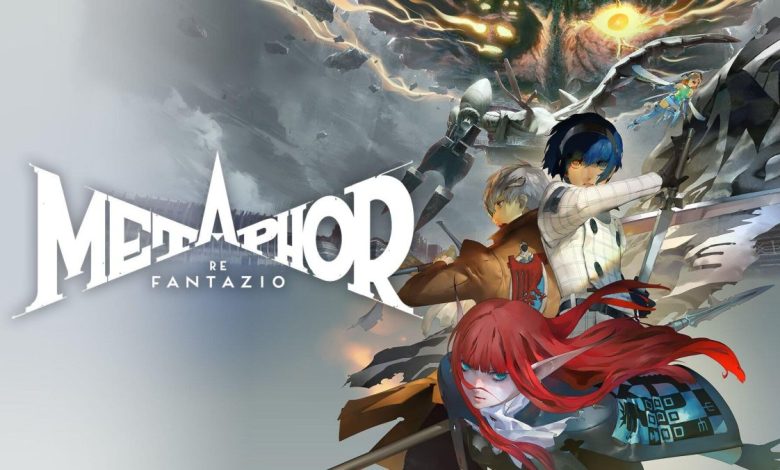
If there's one company that currently offers, seamlessly, top-notch JRPGs, it's Atlus. When your "roster" includes stalwarts like Shin Migami Tensei and Persona, it means you're doing something very well. However, it could be argued that in recent years, Atlus has been standing too much on the success of the two aforementioned games. Especially after the release of the super-successful Persona 5, which was accompanied by remakes and re-releases of older games in the series, the "side" Persona 5 Strikers and Persona 5 Tactica, as well as remasters of Shin Migami Tensei III and V. That now changes with the release of Metaphor: ReFantazio.
It's a brand new IP, which, judging by its quality, is expected to give birth to a new round of quality, tens of hours of JRPG's, something that won't bother fans of the genre at all. Especially when, in general, the mechanics and structure on which Metaphor is based are quite familiar. Namely, the game shares many elements of Persona's gameplay, retaining elements such as the use of a calendar and turn-based battles, but setting up a new setting, within the framework of medieval high-fantasy, sprinkled with several handfuls of steampunk.
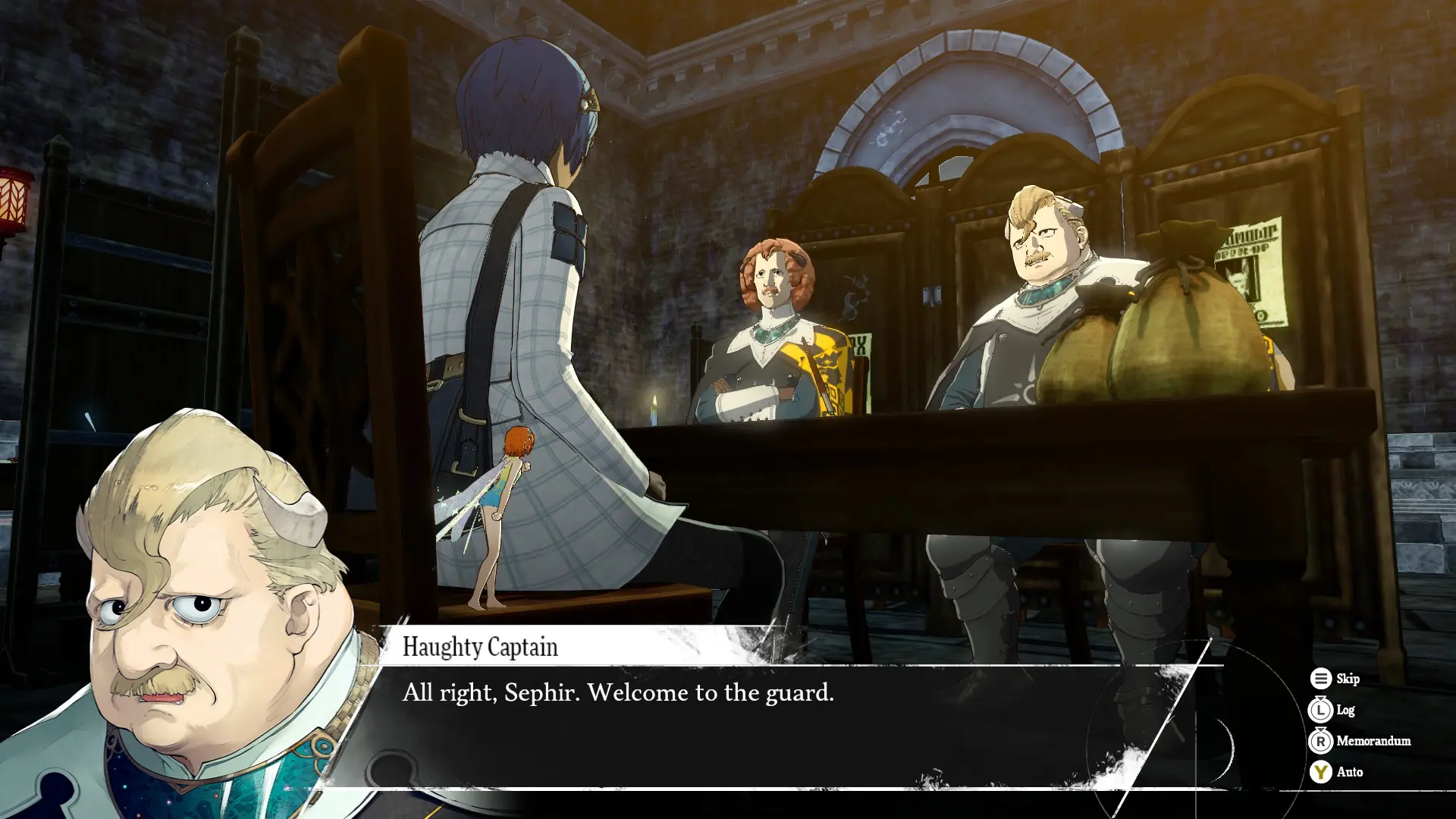
The impressive thing is that, for all its triviality, Metaphor manages to create a convincing world, with the problems facing the diverse inhabitants of Euchronia being timeless and reflecting our own reality. Indeed, in a highly ironic touch, the human race is not among the civilized races of the world (such as, for example, the Clemar or the Elda, where our story's protagonist belongs), but among a caste of horrible monsters, where few have managed to see and survive to tell their story.
However, the whole story revolves around the assassination of the King of Euchronia and the eight tribes' struggle to win the "tournament" to succeed him. In a world where inequalities between the races are huge, racism is extreme, violence is rampant, and the case for survival for some races is a very hard, daily, struggle. Our hero belongs to such a tribe, who is named by our decision and joins the struggle for succession, but has his own purposes for doing so - vanity is not among them. Soon, however, twists and turns, political games and intrigue begin to show their cards, and not a few comrades will appear in his path, who will play their part in the huge (in length) story, which is capable of running to around 60-70 hours (not counting all the side interests).
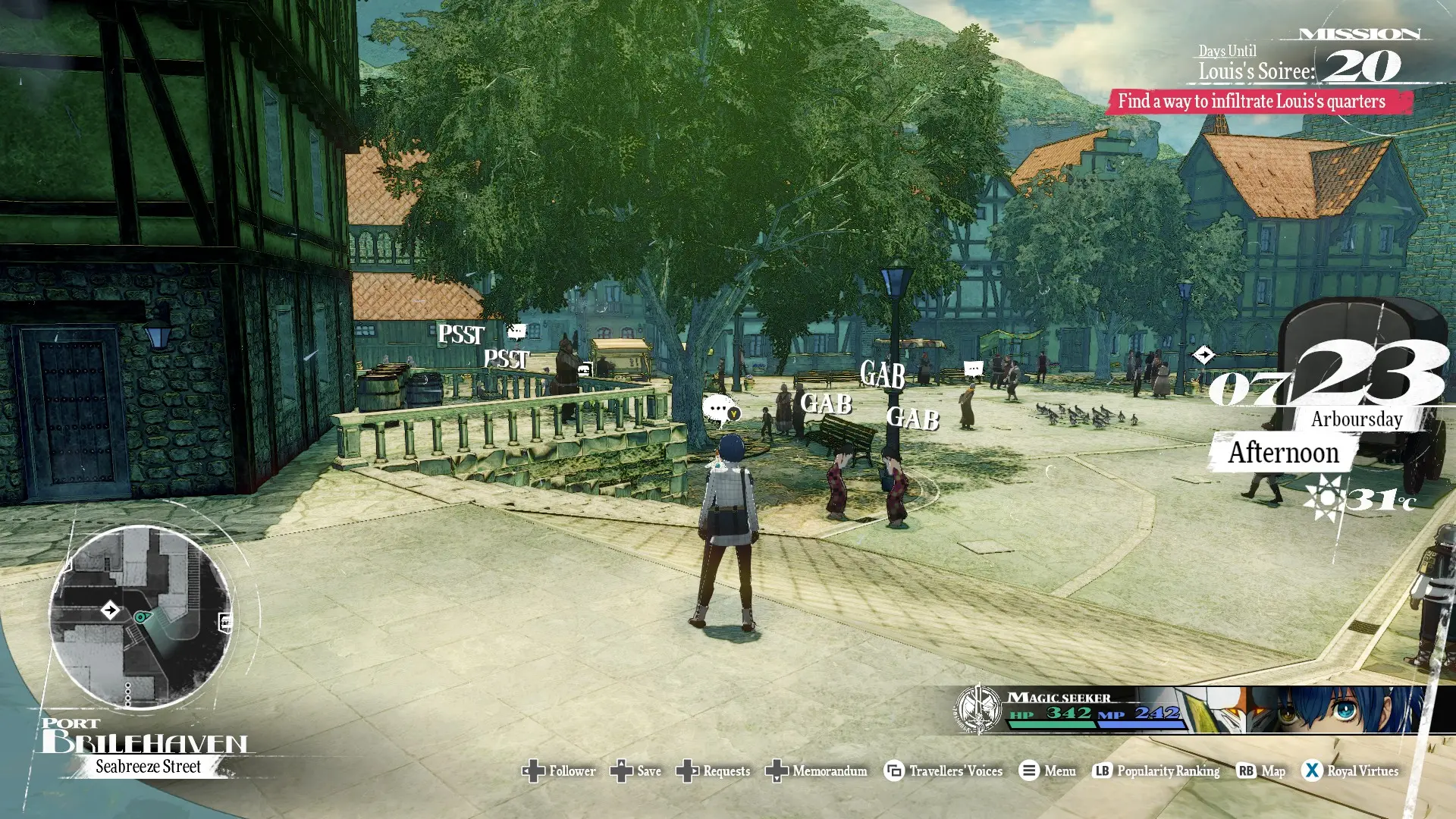
Undoubtedly, a number that is not surprising (it is an Atlus game, after all), but the game manages to put the player so firmly into its world that it is hard to be unhappy that it will take so many hours to see the end credits. Besides, it makes sure to regularly address the ills of our human race with apt juxtapositions, and the fact that the hero often reads a book that negotiates a democratic (!) world, with all its members equal, seems utopian, both for him and for those who read a few pages of it.
But beyond its well-written and politicized scenario, at its heart, Metaphor: ReFantazio remains a JRPG of sorts, with its dungeons, huge cities, dozens of missions, long conversations with your companions to improve your bonds with them, and of course battles. Battles that move in a turn-based framework and prove to be quite fast-paced, with Archetypes reminiscent, in a way, of the personas of...Persona. Almost from the beginning of the adventure, Archetypes accompany the protagonist, and his companions, and offer some unique active and passive skills, such as spells (fire, wind, ice), powerful mass attacks, increased defense or dodging, etc. Needless to say, they level up along with the protagonist (the maximum however is the twentieth), unlocking even more skills, while also providing permanent buffs to some of his attributes (e.g. Endurance or Attack).
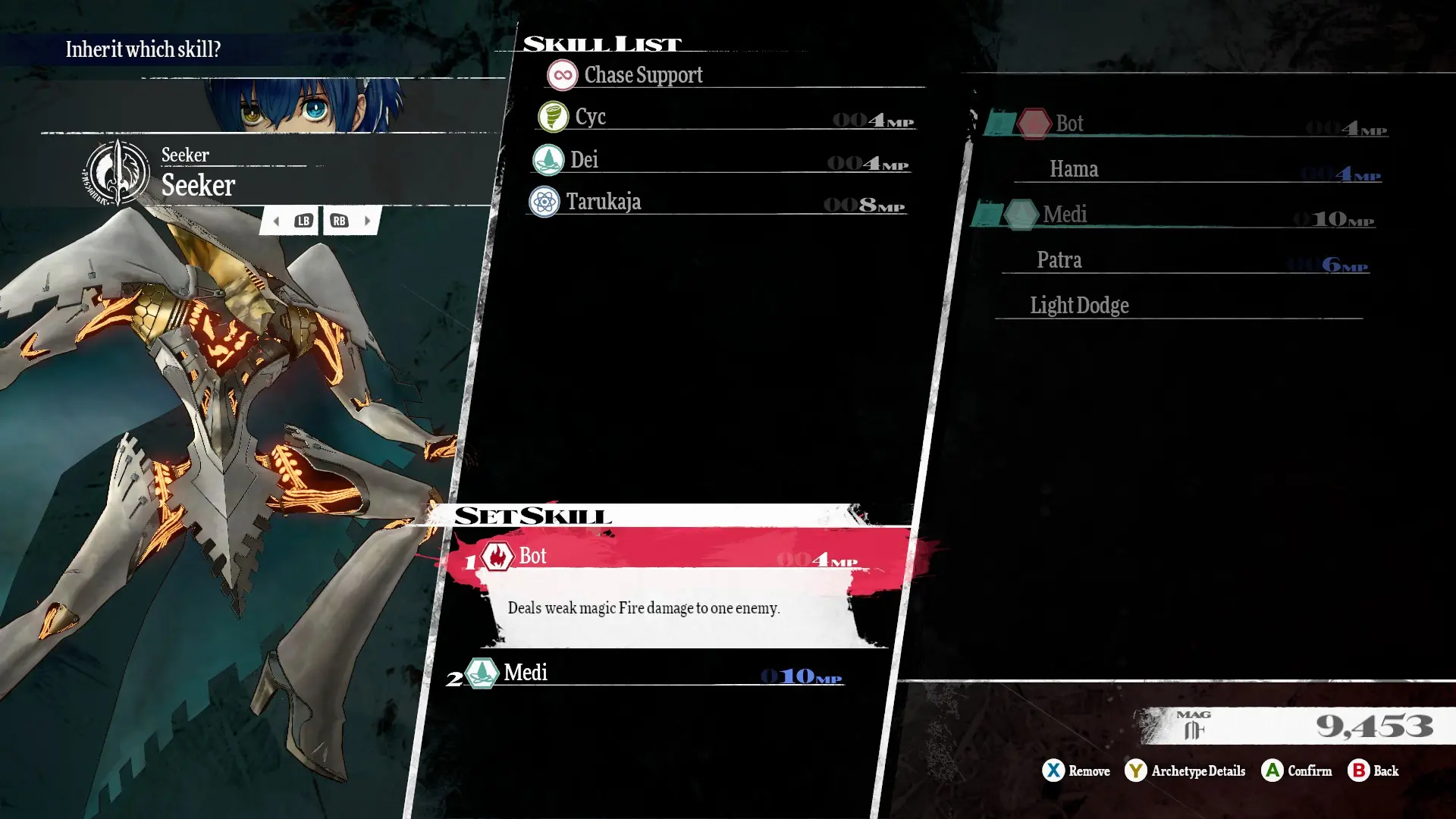
Each hero can choose to wear only one Archetype at a time, but there is the option to acquire many more, which can be changed at any time from the menus, as long as we are out of combat of course. It is a process that is not as optional as it sounds (if we are playing at a difficulty level above Easy), and we have to give due care in choosing them, depending on the dangers we face. There are a total of 46 Archetypes that we gradually discover, which have a wide range of skills and can make the difference between life and death, especially when it comes to enemy weak points.
It's crucial to identify and exploit their weak points, as this way the game rewards us with more turn-points, and therefore more attacks every time it's our turn. On the other hand, any failure in an attack has the opposite effect which sometimes, especially on a boss, can be fatal. The tactical part in battles in general is very much in evidence, as we are given the option to, for example, place heroes in the front or back row with the press of a button (with the back row taking and dealing less damage) or to skip-turn a hero we don't think that their skills can benefit us, to give another one the chance to deal more damage. Or' similarly sacrifice two turn-points for a Synthesis move that will either protect the team from an upcoming, powerful, attack or deal a crushing blow to the enemy.
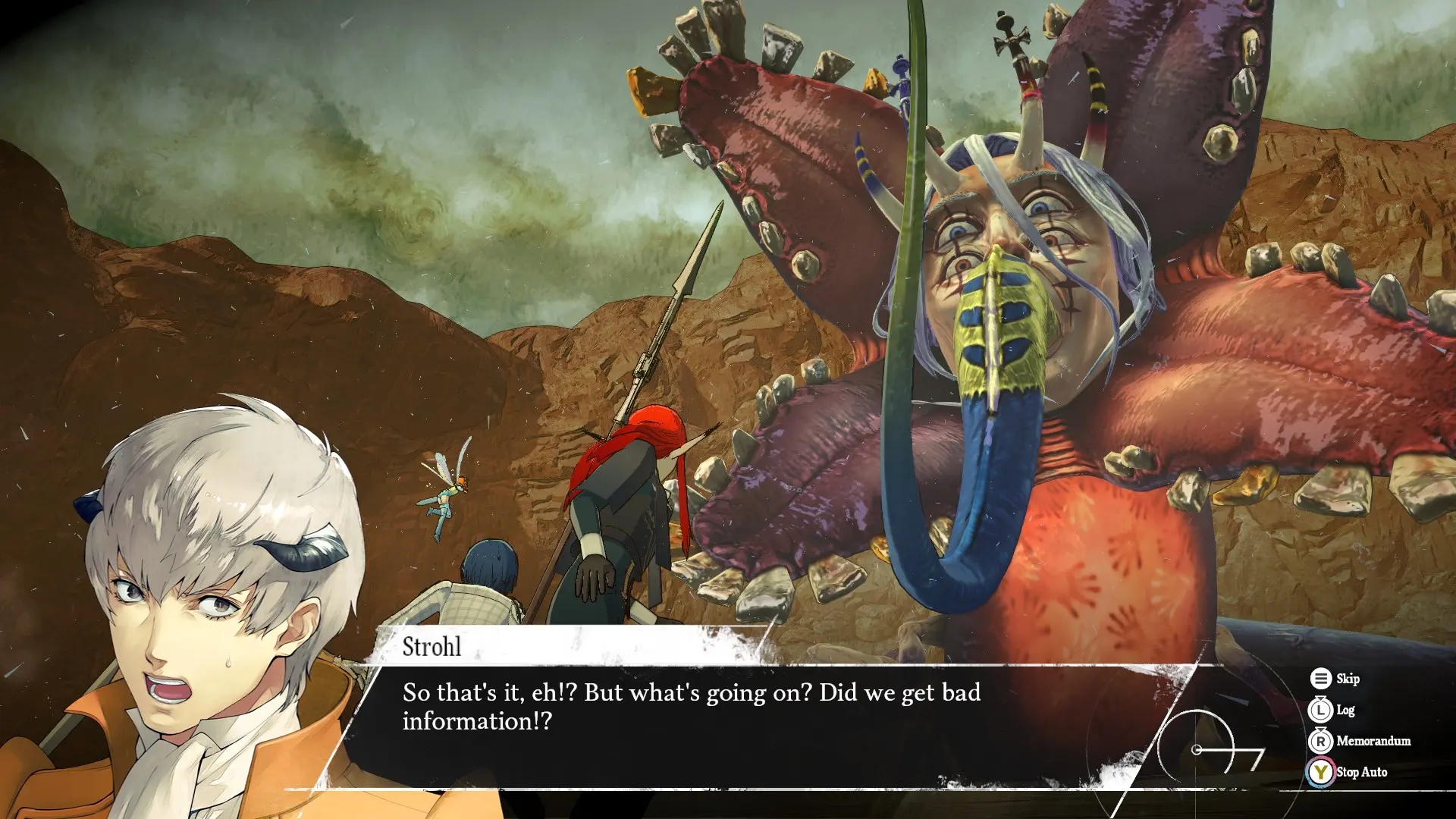
As you can see, the choice of Archetypes is very important (e.g. in a dungeon with undead creatures, it's good to have a Healer or at least an Archetype with Light damage), while a great help is the inherit skill feature, with which we can "borrow" to our current Archetype one or more skills from other Archetypes of our choice (which we have acquired of course), in order to create additional solutions for our team. In short, it's a well thought out and sophisticated combat system that manages to impress the player with its versatility, even after dozens of hours of play.
However, the game is not just about the battles. The world that has been built may not exactly be open-world, but it offers a lot of (fast) exploration possibilities both with the Gauntlet Runner (a vehicle we acquire later) and with fast travel/teleport, while conversations with the inhabitants and our companions (bonds) provide a lot of important information, either on the level of side quests (so more exp and new equipment) or on the level of discovering new Archetypes and skills. Also, let's not forget that we are trying to become kings in the king's place, so we need to practice "social skills" like courage, wisdom, imagination (we have seen something similar in Persona), which in turn require a lot of time to evolve.
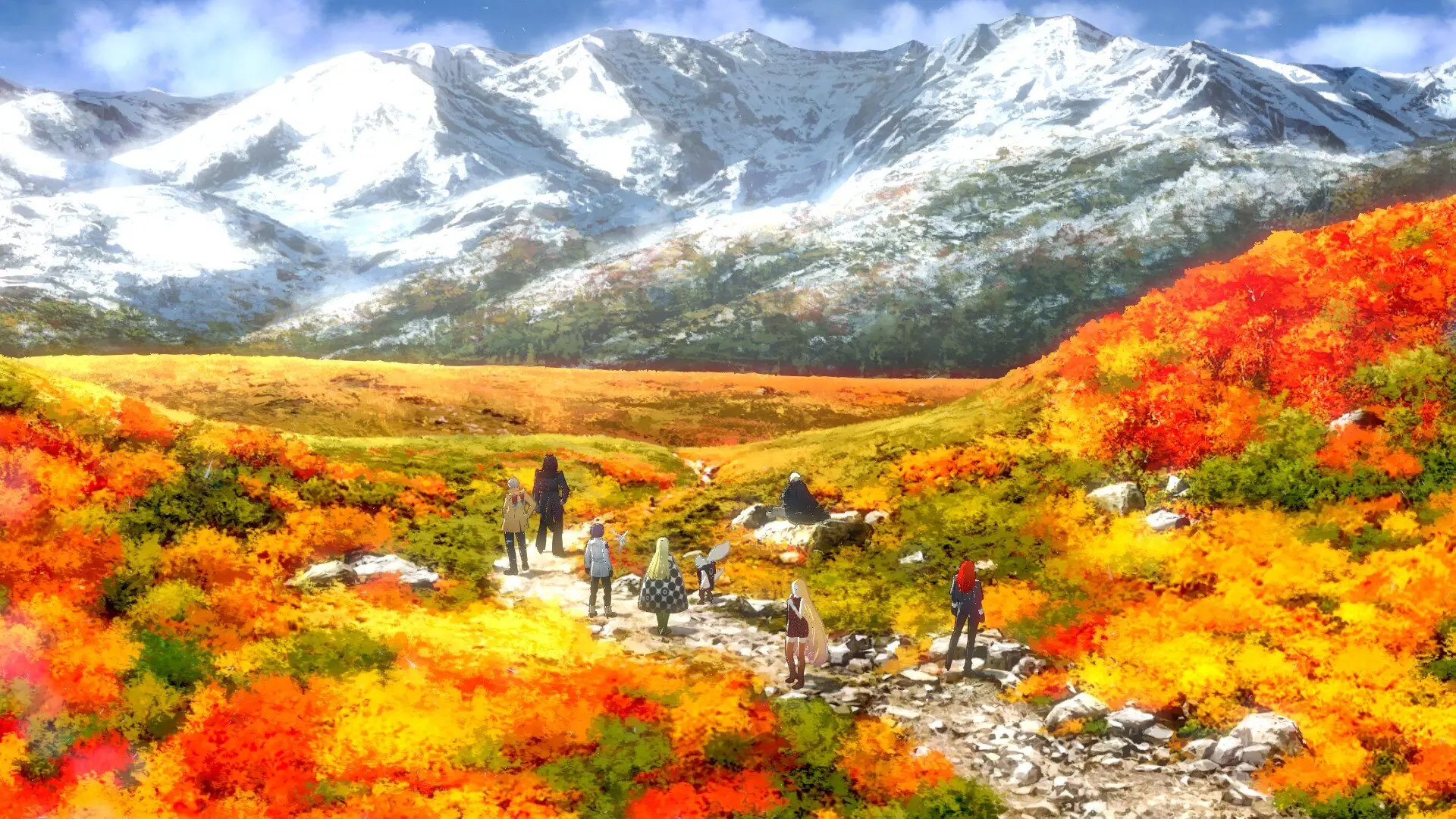
Time is not unlimited in Metaphor and many times, especially in the main story quests, we have a deadline to meet, otherwise we end up in game over. However, it's not pure real-time, but time passes depending on the actions we take (e.g. chatting with a member or entering a dungeon to fight). De facto, it's impossible to complete all activities in one playthrough, so we have to manage our time between empowering our hero and his social life. Although in general, the deadlines given to us are quite generous, we need to be careful not to be caught off guard if we haven't prepared well and run into problems with some dungeon battles, which may force us to return to town regularly for resupply and rest (damn those MPs, hard to replenish them) and thus waste time.
Certainly, the fact that the game, realizing that it is HUGE in duration, has some quality-of-life features, in order to speed up some time-consuming processes, is a positive element. For example, if the enemy we're facing is much lower level than us, it only takes one hit with our weapon to eliminate them without going into battle mode, and because grinding Archetypes seems like ascending to a mountain, every time a Master-level Archetype levels up, an item is dropped that gives plenty of exp to any Archetype we want, without having to wear it in battles. Incredibly convenient to add.

In general, the feeling one gets from playing Metaphor: ReFantazio is that it is one of those games that has the "knowledge of itself", that is, it is fully aware of its value, and it shows it. Its visuals, with its cel-shaded graphics style, may not be anything spectacular, but it is unique and with its own, personal stamp (the design of some humans is to wonder what the creators were thinking, but... Japanese after all). The orchestral soundtrack is wonderful, with melodies capable of making you hum them at inconsequential moments (I haven't had that in years) and with not a few epic, grand, moments. In terms of gameplay and story, it's more or less become apparent that this is a top-notch production worth indulging in for fans of JRPG's and beyond.
So Atlus has once again worked its miracle and Metaphor: ReFantazio stands right next to Persona and Shin Migami Tensei, which in itself is an impressive achievement. Thumbs way up.
Many thanks to Zegetron for providing the review code.
RATING - 93%
93%
Fantasia
A wonderful game from Atlus, Metaphor: ReFantazio is the perfect start for a new series of high quality JRPG's.











